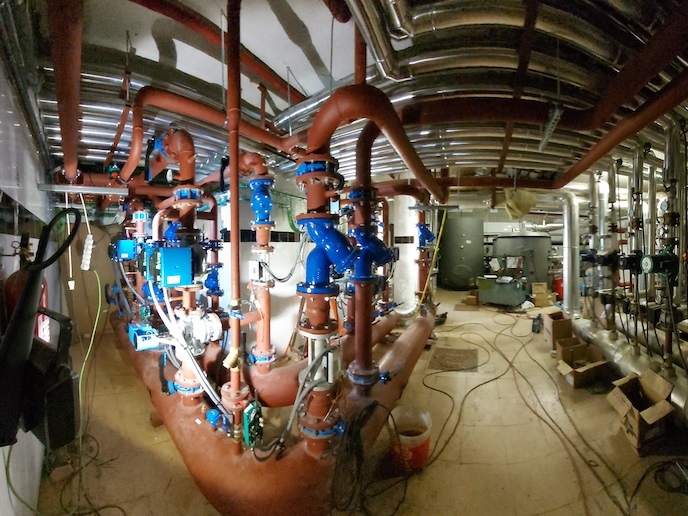
District heating networks are highly efficient, but there is room for improvement when it comes to decarbonisation. Through pioneering new technologies, EU-funded researchers have opened the door for networks to make more use of renewables and waste heat.
Moving away from fossil fuel dependence
There is growing interest in harnessing the efficiency of district heating (DH) to facilitate the decarbonisation of heating energy, and for this system to be part of Europe’s green transition. More use could be made of renewable and waste heat sources, however, DH networks are complex systems that serve large areas. Continuity of supply and meeting heating demand at all times is critical. This sees limited enthusiasm from both networks and consumers for making the transition to low-carbon fuel sources.
Pilot energy projects
The EU-funded RELaTED project sought to develop and demonstrate novel technical solutions. Central to this was the concept of transitioning to ultra-low thermal (ULT) DH networks.
“DHs will need to reduce their operational temperature in order to integrate low-grade industrial heat sources and accept a larger share of renewable energy sources,” explains Garrido Marijuan.
Different technology options – as well as barriers – were explored. “These included the challenges of domestic hot water production and ensuring adequate comfort levels. Viable technologies included new substation technology, heat pump technology, and integrated solar thermal system technology.”
Integrated ULT concepts were then demonstrated at four sites, which provided contrasting climatic conditions, infrastructure and urban density. These pilots included a large DH network in Serbia, a new urban development in Denmark, an operational DH network in Estonia, and a corporate DH network in Spain.
Energy savings and reduced thermal losses
This work successfully underlined the feasibility of this new generation of ULT DH networks. Together, the demonstration pilots achieved direct energy savings from reducing thermal losses of up to 570 MWh/year, with more than 10 GWh/year provided by injecting waste heat.
Being part of RELaTED also enabled several industrial partners to fine-tune their products, to the point where their technology is almost market ready. There are hopes the pilots’ technology demonstrated here will now be installed elsewhere.
For Garrido Marijuan, the main beneficiary will be society. “We will be able to rely on decarbonised systems to heat our cities, which accounts for 40 % of total energy consumption in Europe,” he says.
“Further efforts must now be made for a large replication of the concept in all the old-fashioned DH networks, allowing for a massive uptake of renewable energy and waste heat sources.”
MORE INFORMATION
- Reference
- SOCIETAL CHALLENGES - Secure, clean and efficient energy
- Project duration
- 1 Nov 2017 - 30 Jun 2022
- Project locations
- DenmarkEstoniaSerbiaSpainSwedenNorwayPolandBelgium
- Overall budget
- €4 650 630
- EU contribution
- €3 943 25084.8% of the overall budget
- Project website
- https://www.relatedproject.eu/
Stakeholders
Coordinators
FUNDACION TECNALIA RESEARCH & INNOVATION
- Address
- Parque Cientifico Y Tecnologico De Bizkaia Astondo Bidea Edificio 700 (Bizkaia), 48160 Derio, Spain
- Website
- https://www.tecnalia.com/
